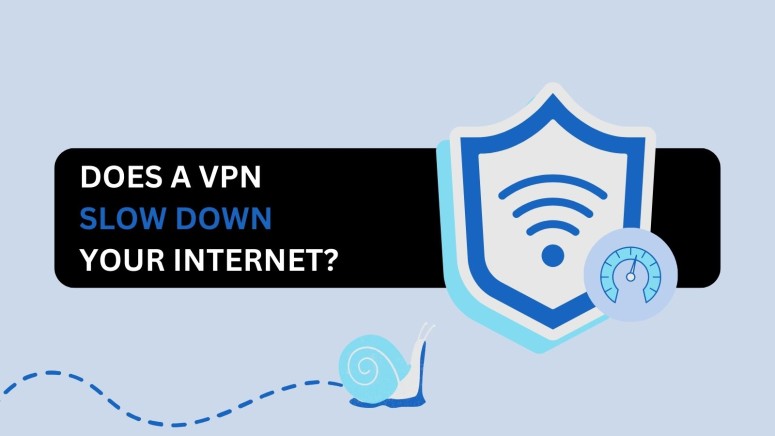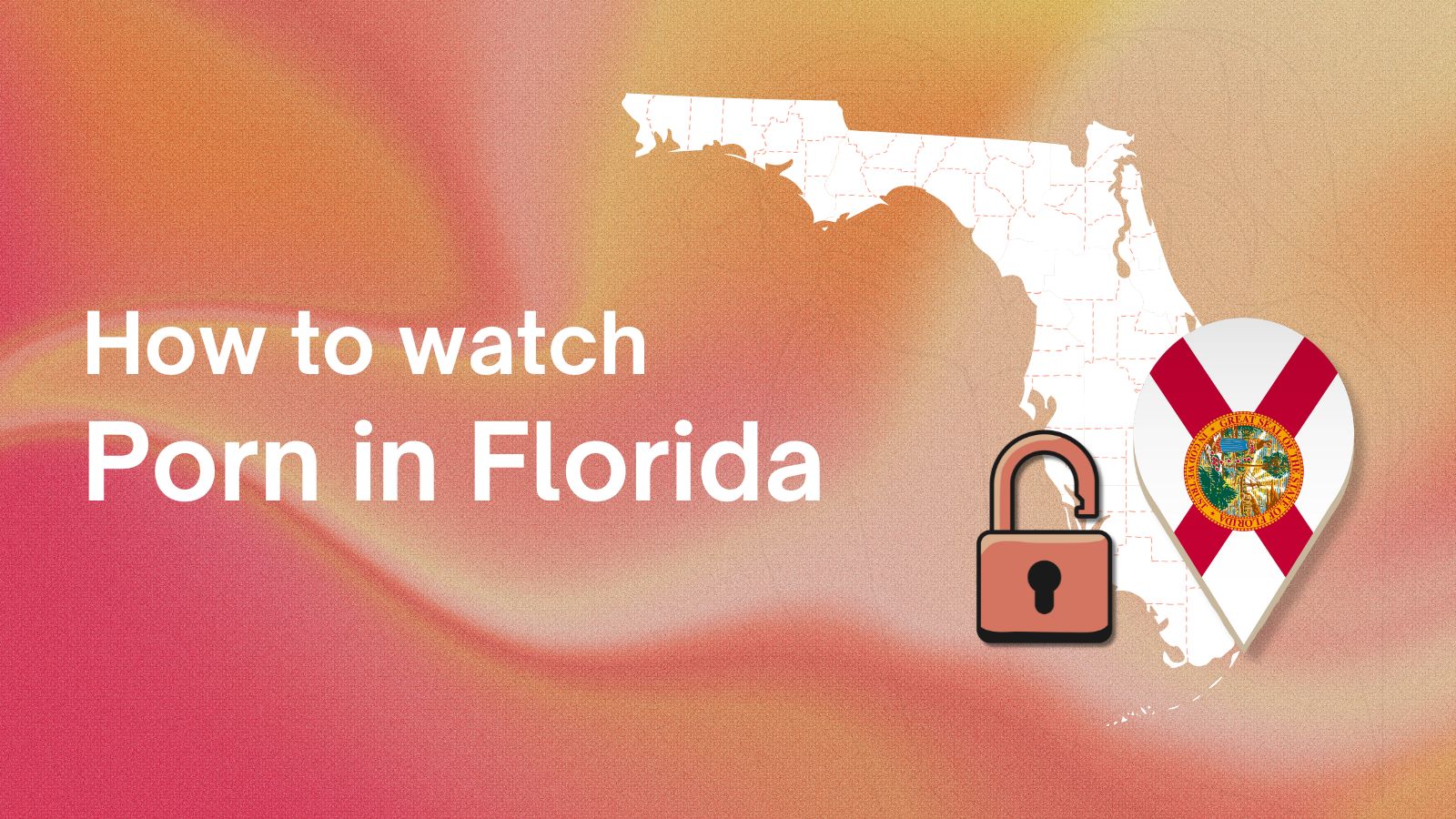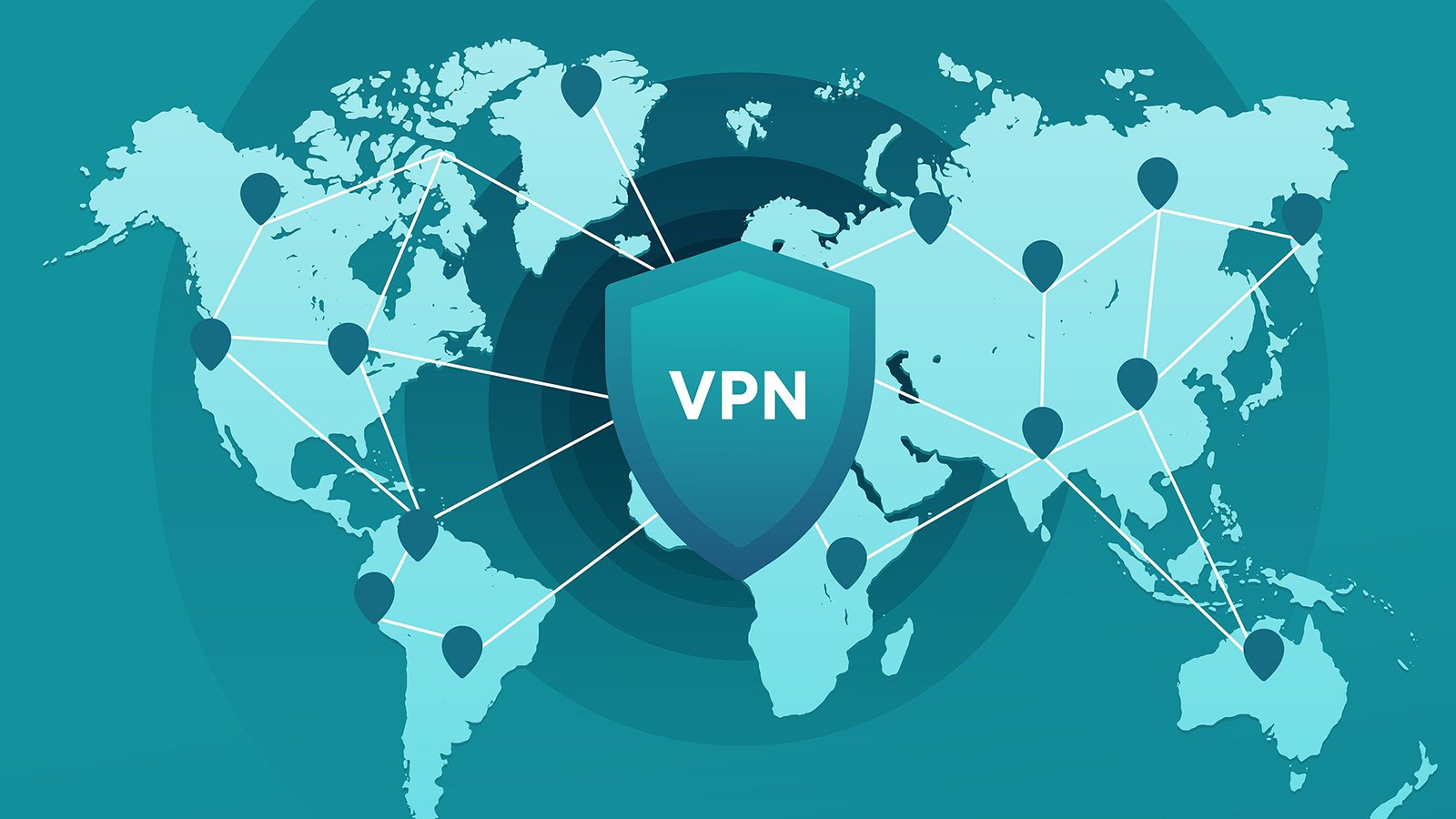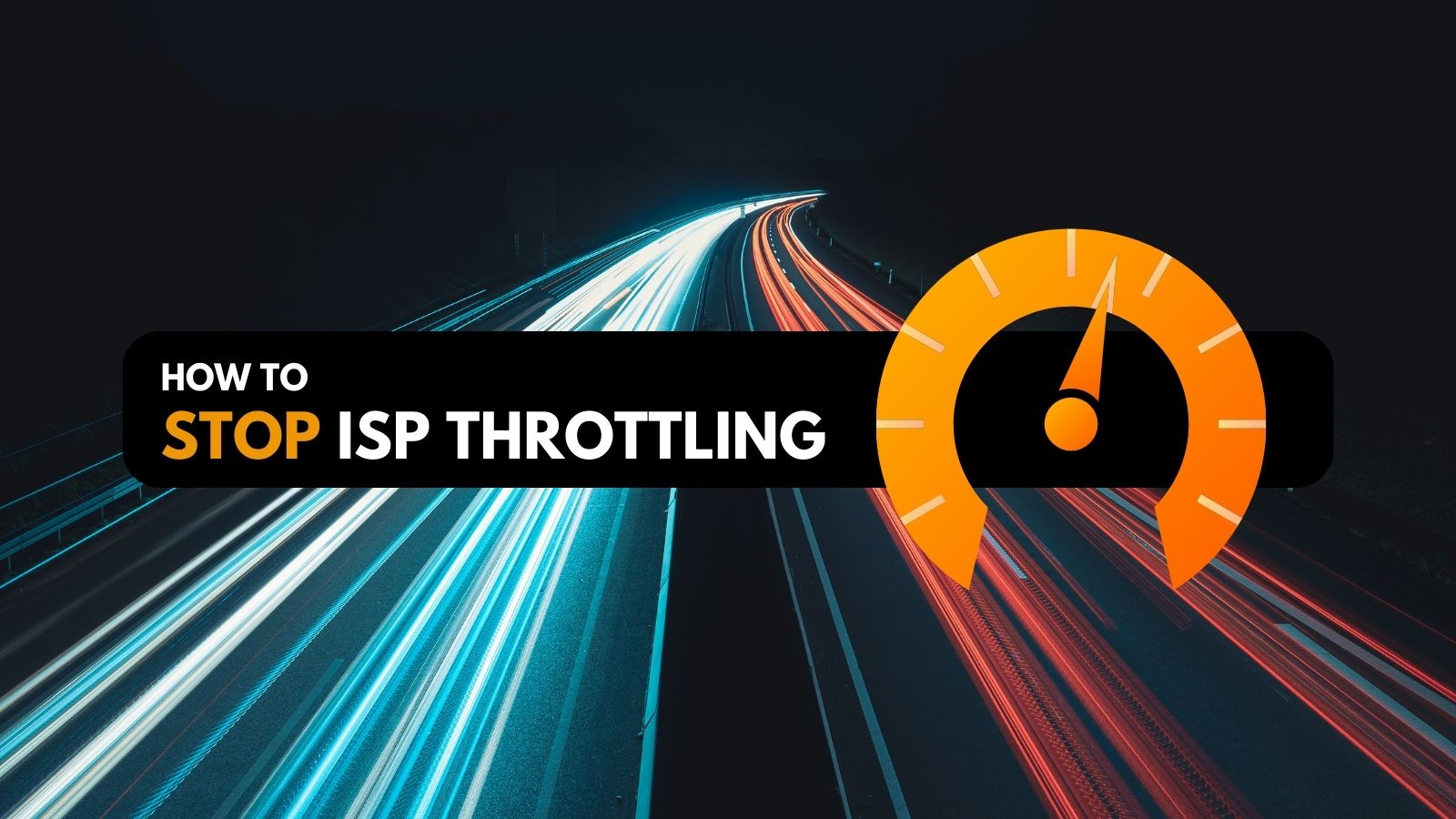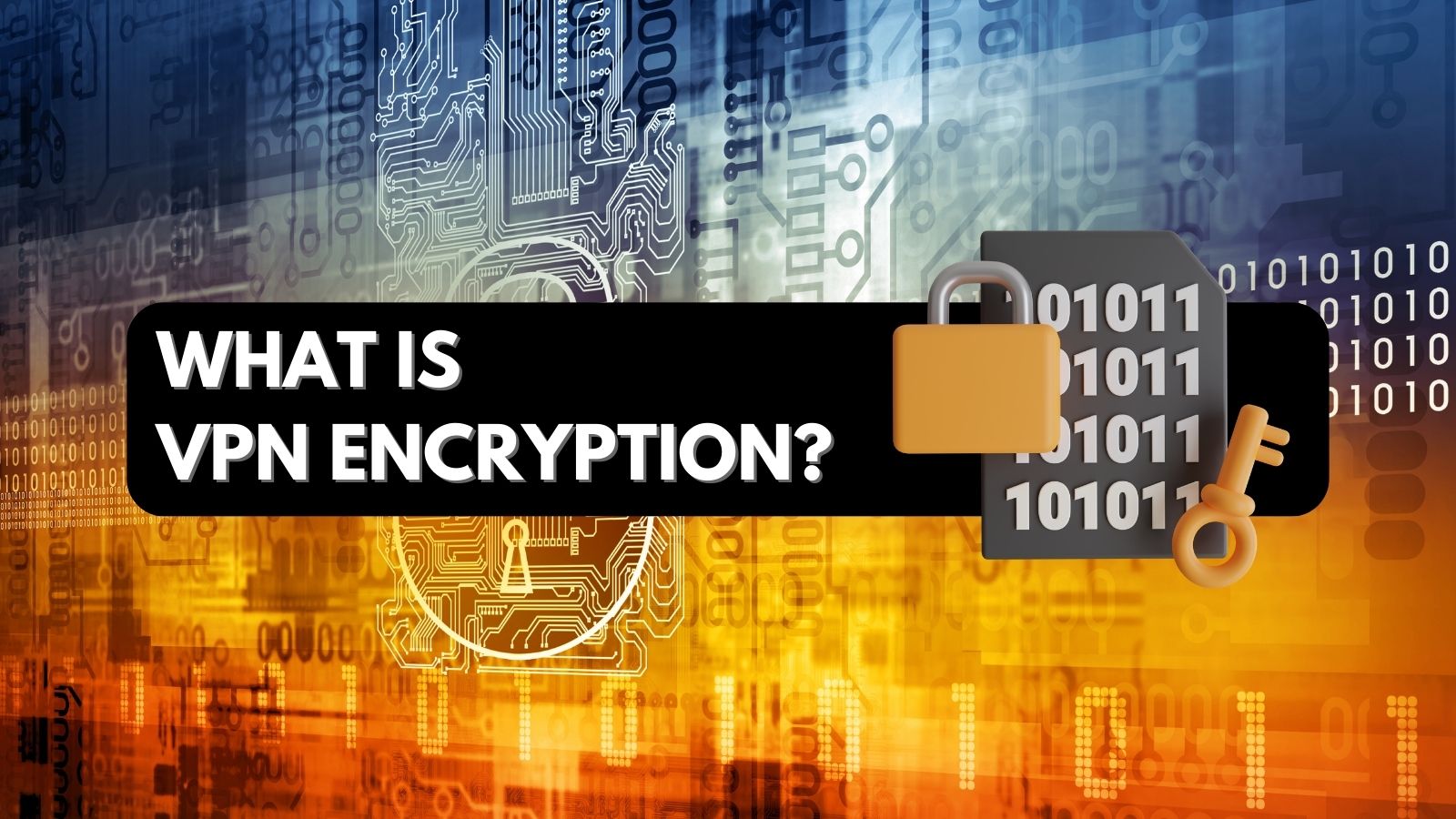
When you purchase through links on our site, we may earn an affiliate commission. Here’s how it works.
Does A VPN Slow Down Your Internet? How to Make It Faster?
VPNs have many significant advantages, such as securing your connection and providing access to global content. However, one disadvantage of VPNs is that they can slow down your Internet connection. If your Web connection is already slow, connecting to a VPN can further drop your speed to a point where using the Internet becomes impossible.
Capable VPNs will only slightly reduce your Internet speed. They send all your traffic through a secure server and employ encryption. So, a slight delay can be expected since the data packets have to jump through multiple hoops before reaching their destination.
In this article, we will discuss whether a VPN slows your Internet, why VPNs affect Internet speeds, and ways to improve your connection speed while using a VPN. You will also learn how to test your VPN’s speed.
Does a VPN Slow Down the Internet?
Yes, a VPN usually slows down your Internet speed. VPNs affect Internet speed by encrypting your Web traffic, which adds a delay in routing your data, resulting in a speed decrease.
When you connect to the Internet through a VPN, your data doesn't take the direct route it normally would. Instead, it travels to a secure VPN server in a different location before reaching its destination. Also, encryption scrambles your data into unreadable code, which gets decrypted at its destination.
While this makes your data more secure, it adds additional delay and, hence, reduces your Internet speed. However, the extent to which a VPN slows down your Internet speed depends on various factors, including the quality of the VPN service, the distance to the server you're connecting to, and the original speed of your Internet connection.
For instance, if your starting speed is 100Mbps, a drop to 80Mbps with a VPN might not be noticeable during casual browsing or streaming. However, you might see that your VPN is slow for activities like downloading large files. The good news is with the right setup and a closer server, the impact on speed can be minimal.
Reasons Why a VPN Affects Internet Speed
Using a VPN changes the way your connection gets established. A VPN that slows down your Internet speed does not necessarily mean that it’s faulty. Many factors can exacerbate a VPN’s speed decrease and make it more noticeable. These include slow ISP speeds, server distance, type of encryption, network congestion, and more.
Let’s take a look at all the major reasons for VPN throttling Internet speed.
Slow ISP Speed
Your original Internet speed is a significant factor. A slow VPN connection can be more noticeable if the speed you get from your Internet Service Provider (ISP) is already slow. Since a VPN can't improve upon the speed you start with, a sluggish baseline will amplify the speed decrease. This will affect everything from Web browsing to streaming.
Distance Between You and the VPN Server
The further the data travels between you and the VPN server, the longer it takes to reach the final destination. A distant VPN server can mean increased latency, slower response times, and a more noticeable impact on Internet speed. This especially applies to activities that require high bandwidth, like video calls and gaming.
Level of Encryption You Use
More robust encryption adds complexity to your connection, slowing things down. For activities that demand a swift connection, the level of VPN encryption chosen can be the difference between a seamless and a sluggish experience.
For example, the AES 256-bit encryption algorithm is more complex due to having lengthier keys and, hence, slower than AES 128-bit. However, it makes up for it by scrambling the data in a way impossible to crack. If your VPN connection is slow, consider using a VPN with a lower encryption level.
VPN Protocol You Use
Different VPN protocols have unique characteristics and can significantly influence your connection's speed. Some prioritize security, which can affect speed, while others emphasize performance. For instance, OpenVPN UDP is more secure than OpenVPN TCP. However, it is also noticeably slower than TCP.
Overcrowded Server
The number of users connected to a particular server can result in a slow VPN connection. An overcrowded server can struggle to keep up with the demand, leading to slower speeds for everyone. Think of it like traffic, where a higher number of cars will increase congestion on the road.
12 Ways to Make Your Internet Faster When Using a VPN
There are several ways to counter the speed decrease and make your Internet faster while connected to a VPN. Let's look at some strategies that can help you achieve this.
1. Check Your Internet Speed
Before adjusting your VPN settings, it's essential to double-check your baseline Internet speed. Conduct a speed test with and without your VPN active to determine if the VPN is the cause of the slowdown.
To do this, head to a website that tests your connection speed, such as speedtest.net, and click the “Go” button. However, before doing this, shut off all bandwidth-heavy activities like downloading, streaming, video calling, and gaming.
This step is essential in identifying whether the issue lies with your VPN or ISP. If your VPN speeds are higher than your baseline speed, it means that your ISP is throttling your connection. Fortunately, a VPN will let you bypass ISP throttling and solve this issue.
2. Change Your Protocol Settings
VPN protocols form a set of rules that determine how your data is routed through the VPN. Choosing the right protocol can increase Internet speed while connected to a VPN. Experiment with different protocols in your VPN settings and observe the effect on speed.
Protocols like OpenVPN (UDP) can potentially offer faster speeds. However, remember that each protocol has its trade-offs between speed and security. Choose a protocol that best aligns with your needs.
3. Choose a Lightweight Encryption
While encryption is vital for securing your data, higher encryption levels can slow down your connection. If security is less of a priority, choose a VPN with various encryption levels.
Alternatively, try a VPN with a more lightweight encryption protocol, such as IKEv2 or WireGuard. This can significantly improve VPN speed without massively compromising your online safety.
However, we recommend sticking with a capable VPN that offers AES-256-bit encryption because lowering your guard on the Web defeats the purpose of using a VPN.
4. Use Split Tunneling
Split tunneling allows you to choose which traffic goes through the VPN and which accesses the Internet directly. This feature can speed up your VPN connection by reducing the load on the VPN.
Use split tunneling to direct only sensitive activities through the VPN while letting others, like streaming, use a direct connection. The best VPNs with split tunneling allow customization, such as the option of excluding or including specific apps.
5. Choose a Reliable VPN Provider
Selecting a high-quality VPN provider is crucial for maintaining good speeds. Make sure to consider these factors when choosing a VPN:
- Server network size: A more extensive network reduces server loads by reducing congestion, significantly improving speed. We recommend NordVPN because it comes with 5,900+ ultra-fast servers.
- Server locations: More server locations mean that there is a higher chance for you to find a server close to your location. This will reduce the distance that your data packets have to travel.
- Performance reviews: Before choosing a VPN, look for its reviews on the Internet. Always choose the fastest VPNs that are capable enough and are known for their high-speed servers.
6. Avoid Free VPNs
Free VPNs often result in slower speeds due to overcrowded servers and limited infrastructure. Instead of free VPNs, it is better to invest in a capable VPN that offers faster speeds and increased security.
Not only that, but free VPNs are also known to sell user data to advertising agencies. Some may also bombard you with invasive adverts and push spyware to your device.
7. Reset Your Modem/Router
If your VPN is slow, a simple modem/router reset can speed up your VPN connection. To do that, follow these steps:
- Locate the reset button on your device.
- Press and hold the button for 10-30 seconds.
- Wait for the device to restart and reconfigure your settings if necessary.
8. Connect to a Different Server Location
Server distance can impact speed and result in a slow VPN connection. Try connecting to a server closer to your location to increase VPN speed. Avoid servers that are geographically far from you, as they are more likely to be slower.
9. Use a Wired Connection
Wired connections are generally faster and more stable than Wi-Fi. If possible, connect your device directly to your router using an Ethernet cable to make your VPN faster.
10. Turn Off Firewall and Other Unnecessary Software
Firewalls and other security software can slow down your VPN. Temporarily disabling these may increase speed, but be aware of the security risks involved.
On Windows, you can turn off your firewall by opening the Command Prompt and entering the command, “netsh advfirewall set allprofiles state off.” However, this will leave your PC unsecured. To turn on the firewall again, simply enter, “netsh advfirewall set allprofiles state on.”
11. Upgrade Your Devices
Older devices may not handle high-speed VPN connections well. Upgrading the hardware, such as getting a better Wi-Fi card or switching to a newer device, can boost VPN speed, especially if your current hardware is outdated.
12. Limit Other Internet Activities
Heavy Internet usage, like streaming or large downloads, can slow down your VPN. Limit these activities when using your VPN to ensure more bandwidth is available for your VPN connection. This may potentially improve VPN speed.
If you are using Windows, you can check which activities or apps are utilizing your bandwidth by opening the Task Manager by pressing Ctrl + Shift + Esc. After that, monitor the Network tab and close any high-bandwidth activities.
How to Test Your VPN Speed?
You can test your VPN speed by visiting a speed testing website and making a VPN speed comparison with your baseline Internet speed. Here are the steps that you can follow to test your VPN speeds.
- Disconnect your VPN to start with your regular Internet connection.
- Visit a reliable speed test website, such as SpeedTest.net.
- Run the speed test to record your Internet speed without the VPN.
- Connect to your VPN and choose a server.
- Perform the speed test again to measure your speed with the VPN active.
- Compare the results to understand the VPN's effect on your connection speed.
The minimum Internet speed for basic tasks like browsing should remain unaffected. Consider changing VPN servers or settings for optimal performance if there's a significant drop.
Final Thoughts
A VPN slows down your Internet because it makes the data jump through multiple hoops before reaching its destination. However, capable VPNs are designed to have minimal speed drop-off to continue high-bandwidth activities like streaming, video calls, and gaming.
For the best performance, ensure you are connected to a server closest to your actual location. Another factor that determines performance is the server network. We recommend NordVPN because it has over 5,900 high-speed servers in 60 countries. Also, it’s among the fastest-performing VPNs on the market, based on our hands-on tests.
We hope that this article taught you everything about why a VPN slows down your Internet speed and that you now have some actionable steps to try. If you want to share your experience, feel free to comment below.

